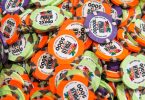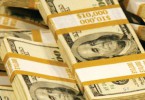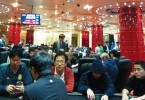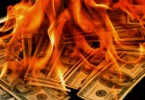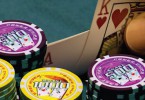This article first appeared in the Jan/Feb 2015 issue of World Gaming magazine.
From highly successful player to globally renowned commentator, Mike Sexton has become known as the voice of poker since he first began with the World Poker Tour (WPT) way back in 2003. Yet despite boasting a WSOP bracelet, promoting the game around the world for more than a decade and winning millions of dollars in cash games and tournaments over the years, his passion for poker has never wavered. WGM Managing Editor Ben Blaschke sat down with Sexton during his recent trip to Asia on behalf of the WPT.

Ben Blaschke: Thanks for taking the time to sit down with WGM, Mike. First of all, you’ve made the trek across to our neck of the woods for WPT National Philippines and WPT National China and have played in the events. What has your impression of the local players been from the time you’ve spent at the tables with them?
Mike Sexton: I’m very impressed, a) with how many players there are, b) the quality of play and, c) these resorts are some of the finest properties you’ll find anywhere in the world so it’s got the whole package here with the potential to continue to grow enormously.
BB: WPT National China is now in its third year but this was the first time you’ve held an event in Manila. Do you expect the WPT to continue its expansion into Asia in the coming years at a faster rate?
MS: Yeah it’s definitely going to be a market the WPT wants to pursue because they understand the potential in this market. We’ve got good numbers for this tournament in Sanya. It’s a weird payout system they have but it shows the players are dying to play in big time events, which is exciting for players around the world. It’s the same in the Philippines, but the thing that has impressed me the most has been just how nice the players are here. You don’t see any belittling of other players, you don’t see anyone hassling the staff about anything and it’s nice to have that when you go to a poker venue. Players are just laid back and happy to have the opportunity to play.
BB: And no doubt you’ve seen plenty of examples of the opposite over the years!
MS: Ha! Yeah back in the old days in Vegas it wouldn’t happen that way. They’d scream about everything! But it’s nice to see how mellowed out the players are in this part of the world.
BB: It must be fascinating for you, having grown up and played most of your poker career in and around Las Vegas, to see the game spreading its wings so far and wide these days?
MS: It really is. The WPT has really become global. When we first started out, I think we had 12 events in Season I and then went to 14 for a number of years. Now we’ve had 72 events over the past year so it’s expanding globally and I’m really for that because we are the World Poker Tour. We’re the PGA Tour of poker. I know that the World Series of Poker is the biggest event in poker of course but our brand is certainly well known globally now and we’re expanding all over Europe and South Africa and now Asia.

Mike Sexton with his WPT co-commentator Vince Van Patten
BB: Do Asian players differ from other players in terms of style?
MS: Actually they’re pretty solid, a pretty tight group of players. There are a few that do the 3-betting thing and get a bit more aggressive than most but as a whole pretty solid play by almost everybody.
BB: There is no doubt poker is really starting to take off in Asia and particularly in Macau, the numbers for events like the Macau Poker Cup (MPC) and Asia Championship of Poker (ACOP) are growing phenomenally year on year. Do you see similarities to the early days of the World Poker Tour?
MS: I do and it’s amazing for me to think back to then compared to now. I remember we spent 10 minutes of the first show explaining exactly what Hold’em was. You know, “Everybody gets two cards, then there is a round of betting, then there is a flop and another round of betting”. We would actually explain the whole game and it took us two seasons to do that before we started to see that our audience had grown enough where we didn’t have to explain how the game was played any more. It was an educational process. Certainly from the commentary booth you didn’t get as intricate about the details and the theory of the game because you were afraid you’d lose your audience. I mean, 80 to 90 percent of our audience was just your average bloke who was tuning in to watch reality TV at its finest which is what poker was at that time. People wonder how poker survived on TV and the truth is that it’s reality TV at its finest. It is real people who put up real money and were really playing for US$1 million. It was life changing money literally at the turn of a card which brought big drama with it and ultimately it just took off. There is no doubt in my mind that the poker explosion – not just in the United States but globally – was because of the WPT. They were the first ones to put poker on television in prime time on a weekly basis and that show became very popular.
BB: Were you always confident that poker would become as popular as it has?
MS: I don’t think anyone expected it to take off the way it did to be honest. I’d always believed that poker had potential for television and I had high hopes but it even exceeded my expectations. We’re in our 13th season now and not many television shows make it 13 years. For us to keep growing strong and continue to grow says a lot for our product.
BB: It was also a case of timing though and a number of factors had to come together for the game to do what it did via the global poker boom. Obviously there was the WPT but also Chris Moneymaker winning the 2003 WSOP was huge for the game, and then Joe Hachem winning in 2005 kick-started the boom in Australia as well.
MS: No question about it. We started airing on television just a few months before Moneymaker won in 2003 and that combination was explosive. He was just an average guy who was working for a tax company as an auditor, then he wins a US$40 satellite as we know and then the Main Event of the WSOP for US$2.5 million. The combination of the growth of online poker and poker on television at that time created the perfect storm. It was the perfect time in history for the perfect product to come out and we’ve seen the growth in numbers since then.
BB: How has your role commentating the WPT and watching the evolution of the game changed the way you play the game, or even the way you commentate?
MS: Believe me I have great appreciation for these young guys playing on television and I’ve become a much better player from watching them play every final table of the WPT and participating in our events. I can see why they’re successful. People ask what the biggest difference is in today’s players compared to yesterday’s and obviously aggression is number one, but when I came up in the poker world you had guys like Amarillo Slim and Puggy Pearson who were pool hustlers in the back of the pool hall who started playing poker because there was more money to be made. Nowadays you’ve got college educated kids that are extremely sharp, very bright guys with access to all this educational material out there so if you want to become a good poker player you can do so very quickly now. They read all the books, use all the software, study the game profusely, watch all the television shows … when I was young there was none of that. When you went broke you went home, scratched your head and tried to figure out what went wrong. The great thing about poker these days is that you don’t have to be the best player in the world to make money playing poker. You don’t even have to be the best in your game, or second best, or third best. Obviously you need to be better than a few guys at the table but if you want to put in the time and the effort to study the game and become a good player you can do it.

Danny Robinson
BB: You are from the generation of players who made a living from poker long before the global boom. How did you get started?
MS: Well I started playing when I was 13 years old. I was taught by a neighbor of mine who was two years older than me and was the big-time gambler in the neighborhood so to speak. Obviously he kept me broke at the time! But it turned out that he would go on to become probably the greatest Seven Card Stud player in the world, Danny Robinson. He partnered with Chip Reese, went to Las Vegas and together they made US$1 million in one summer in 1973 and became Vegas icons. Now, at the time I didn’t realize how good this guy was but when I went to University and started playing against the average guys I could see that it didn’t matter what card game it was, I was better than all of these guys. So I knew I had a knack for cards then. I later joined the army for a while, then when I got out of the army I started finding some local poker games in North Carolina and did well at them. Eventually I went to the WSOP and played in three events, made two final tables – that was in 1984 – and then moved to Vegas to play professionally. Literally for 20 years I just played poker for a living – no outside income, no cheques, I just made all my money from poker and I loved it. I think if you’re even considering being a poker player you have to love the game. I don’t care how great you are, if you’re not happy playing the game you’re going to be miserable in life even if you’re successful at poker. I was very fortunate that I loved to play and when one game ended I couldn’t wait until the next day to get to the next game. For me it’s been a love affair with poker. I always had a dream to put on a big event and in the late 90s I put on the Tournament of Champions which was a fantastic event and by doing that it transitioned me to the business side of poker and my job with PartyPoker and the WPT. I’m probably known more as a commentator now because I’ve made that transition to the business side but the truth of it is I still consider myself a poker player first and a commentator second.
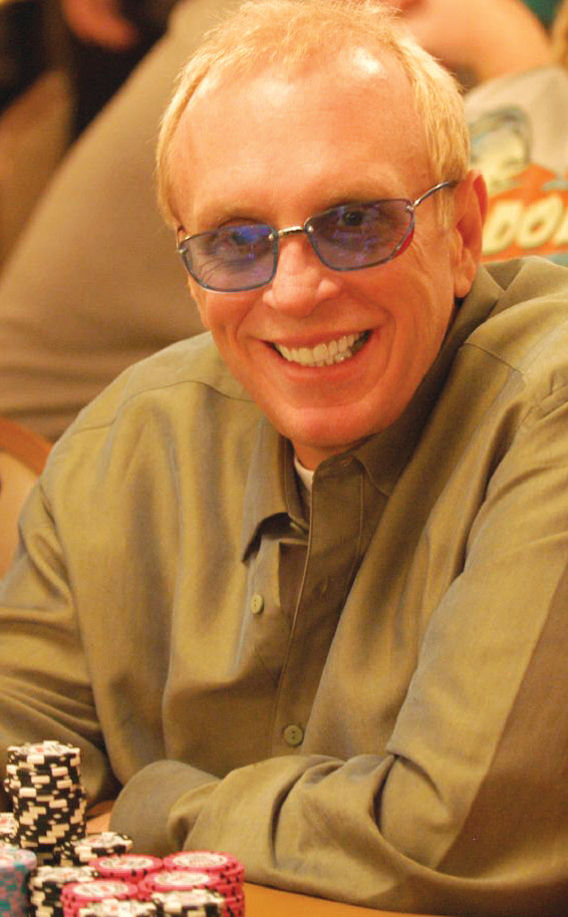
Chip Reese
BB: You mentioned the countless resources now available for players wanting to improve their game these days but you didn’t have that luxury when you were an up and coming poker player. How did you go about improving your game when things weren’t going so well for you?
MS: I was very fortunate to have good friends in Chip and Danny who were both from Dayton, Ohio like me. They played in the highest stakes game in the world in Las Vegas so when I would go and stay with those guys I got to know all the high stakes players – even though I didn’t play in those games at the time because I couldn’t afford it. I had access to them and played lower games and did well. In fact, I always won when I played poker. I look back on it now and eight times out of 10 I won … but I still went broke by betting on sports! I was a sports degenerate and a junkie at betting on sports. I’d win five days in a row playing poker but by Monday wouldn’t have enough money to pay the bookmaker because I’d lose betting on sports on the weekend! But I knew guys who would always lend me money and stake me in games so it wasn’t like I was ever broke and out of action, I was very fortunate I was able to get action whether I had money or not. To me, looking back on it I realise how valuable it was to have those guys around me because if you don’t have anyone around you who believes in you or enough money to play, you’re dead meat. It doesn’t matter how good a player you are, if you don’t have enough money to ante up it doesn’t make a difference. You’re dead. What I tell young players nowadays is that money management is the single most important skill they can have. The same applies for someone playing professionally or even for someone who plays poker as a good hobby.
BB: You won a WSOP bracelet in a US$1,500 Seven Card Stud event in 1989. Is that your career highlight?
MS: It was the most exciting win by far in my career and even though I’ve had US$1 million scores a couple of times, it was very special. What made it so special to me was that I played Daniel Negreanu heads-up, we ended up playing for seven hours and I came out on top. It’s the competition that makes it so great. There will never be an equal thrill to that moment because I won it playing Seven Card Stud Hi-Lo Split which was the game I played for a living at that time. Nobody played No Limit Hold’em back then except the guys from Texas so to me, Seven Card Stud was my championship event and winning it was more special to me than it would have been to anyone else. It meant a lot to me to win that bracelet.

BB: Given your work on the World Poker Tour, is there a burning desire to add a WPT title to your list of career achievements?
MS: Well it would certainly be nice to win a WPT title but it’s ironic, the first seven years of commentating on the WPT I wasn’t allowed to play in the events. Steve Lipscomb who owned the WPT at the time was worried that if I played and made a final table or won, people would think it was fixed or something so he didn’t want us to play. Now, after all these years, the WPT wants us to go and be at an event from Day 1 through to the final table to give it the WPT feel and meet and greet all the players, so they said if I want to play some events that’s fine. So I now play seven or eight events a year on the WPT and it’s really fun for me to do. I enjoy mixing it up with the older guys and the young guns and seeing if I’ve still got it against them. It’s a competition for me because the opportunity is so infrequent that I really relish the opportunities when I do get to play. And I’ve certainly had my successes too. I haven’t won a title yet but I’ve made a couple of final tables and a number of cashes. Maybe we’ll get one someday.
BB: How did you feel about not being able to play WPT events for so long, and are you comfortable playing them now?
MS: Well Steve told me right up front, “I’ve got good news and bad news – the good news is I want you to be a commentator on the World Poker Tour, the bad news is if you take the job you can’t play in any of the events”. At that time I’d been playing the tournament circuit for over 15 years but there were no big prizes like there are today. Other than the WSOP, if you won US$40,000 in a tournament it was big. So I had done that for a number of years and thought this would be a new challenge and fun, but who knew they would be playing for US$1 million every other week! Still, there has been nothing like it for me and I have loved the job. I think it also comes across on screen that Vince (Van Patten, Sexton’s co-commentator) and I are both poker guys who fell into commentary, not broadcasters that they transitioned into poker like they did with the WSOP for example. We grew up playing poker, we love the game and I think that shows on screen. It’s great for us to watch the creative plays these guys are making at a final table. I remember watching Gus Hansen in our very first tournament at Bellagio. We couldn’t see the cards because it was against gaming laws during play, so we’d go back to the studio and see these rubbish hands that Gus was playing and we’d say, “Wow, people are going to love this show!” Gus was the best thing that could have happened to us. He was probably the only unknown player at that final table but went on to become the most popular player on the WPT for a number of years there because of his aggressive style and good looks. He reminded me a little bit of Stu Ungar with that imaginative style and that aggressiveness. Phil Ivey has that aggressiveness. You see all the really great players – it doesn’t matter who else is there, the great ones are always in command of the table and everyone knows it but you just can’t stop them.
BB: What do you believe the future holds for the WPT?
MS: I think it will continue its expansion. Certainly poker is here to stay and will continue to grow globally, no doubt about it. Obviously in the United States we’re hopeful that online poker will come back and allow us to play in most states which would be a tremendous advantage for live casino properties as well because if guys can qualify for US$20 or US$50 for a WPT event, you’ll be able to fill however many seats you have in the room. You could get 1,000 or 2,000 qualifiers easily if online poker was regulated, so the WPT is obviously hoping it will come back.
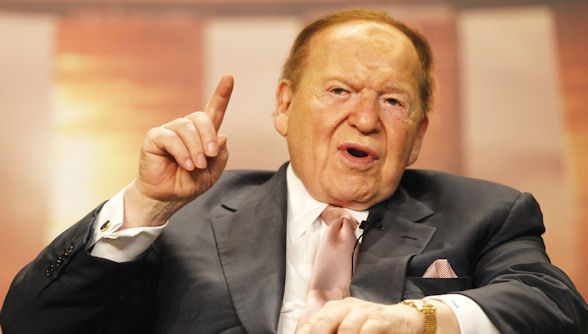
Chairman and CEO of Las Vegas Sands Corp, Sheldon Adelson
BB: The ongoing battle to get online poker back up and running in the United States has seen some success in certain states but less success in others. Are you frustrated by Sheldon Adelson’s public campaign against it?
MS: Frustration is putting it mildly and don’t let me go off on a tangent about him. Here is a guy who made his money gambling and getting people drunk at the table, taking advantage of them and apparently that’s okay. He even has a big poker room in his casino but those same players aren’t allowed to go and play online when they get home? This is insane to me. How can they not allow someone to do what they want to do in the privacy of their own home that doesn’t bother anybody? You know, some people like to go out to fancy dinners, some people like to shop, some people like to go to movies, some like to go to ball games … well millions of people like to play poker and why should they be banned from playing a US$20 satellite or a tournament where they might win US$1,000 in their own homes? That’s exciting for people and to take it away from them is a violation of human rights in my mind. It’s not even about poker, it’s about the freedoms that people should have to do what they please in their own home and being prevented from doing that by a guy like Adelson who has made his money in the gaming world is extremely aggravating.
BB: Are you surprised he hasn’t recognized the opportunities online poker can provide to live poker rooms? We look back at the WSOP and it attracted its biggest numbers when online poker was at its peak in the mid to late 2000s.
MS: I think honestly if you want to know the truth, he felt he was behind in the online poker world. He saw that the WSOP had partnered up and was ready to launch an online poker site, he saw that the WPT had aligned with MGM Properties and PartyPoker and were set to go big time and I think he was behind the eight-ball, ready to be left in the dust. So then all of a sudden he has this campaign for morality which bugs me now. I understand that people are against gambling and I appreciate their opinions. In the US there are two states that have no gambling at all – Utah and Hawaii – and I appreciate that decision if that’s what the people in those states want. But every other state has lotteries, race tracks, casinos – they have some form of gambling – so how do you distinguish that it’s okay to do these ones but it’s not okay to do this? It makes no sense to me. I received a phone call a while back from a handicapped person who couldn’t get to a casino and they felt that their rights had been violated from a handicapped position. They actually wanted me to take their fight to the Supreme Court and be on their side, because they wanted to play in their own home but felt that right had been taken away from them. I think they have a case to be honest and I hope someone who can do it pursues it for them because I think they have a great chance of winning.

BB: Our CEO Andrew W Scott sat down for a lengthy interview with Phil Ivey six months ago which appeared in WGM. What’s your opinion on Phil Ivey’s court cases against Crockford’s and Borgata? He recently lost the Crockford’s case in a decision that many of us consider a highly controversial one, and faces a similar fight against Borgata in the coming months as they seek to have almost US$10 million in winnings returned. Who do you believe is in the right here?
MS: Well Phil Ivey is a very good friend of mine and an icon of the poker world. I feel bad that he lost his case in England but I thought he was drawing dead in that case to start with because they don’t have a jury over there, they’ve got a panel of judges who are old school and that casino is old school. I just couldn’t see them letting what in their eyes was a hustler come over and take all that money back out of the country. I didn’t think he had a chance to win that so it will be interesting to see how the Borgata case comes out. It’s a shame they’ve filed charges against him but one thing I believe firmly is that if Phil wins this case he’s going to have a big defamation of character suit against Borgata. Then again if he loses there could be rough water ahead for him. He could be barred from some casinos, not allowed to play in some tournaments, who knows? I feel bad for him because I know he really believes he did nothing wrong. He said “I can’t help it if I can see” and that shouldn’t be held against him. Most poker players are on Phil’s side. Did he have an edge? Yes he probably did but I think the casinos have to take culpability for this. For them to allow any player to come into any pit game – I don’t care what the game is – and start dictating rules to them, “I want the same dealer, I want the cards rotated, I want to bet this much” … you know, players shouldn’t be able to tell casinos how to run their games so Borgata should be liable if they allowed that. I think there is enough guilt on their part that in my opinion they should just swallow it, pay the man and move on.



